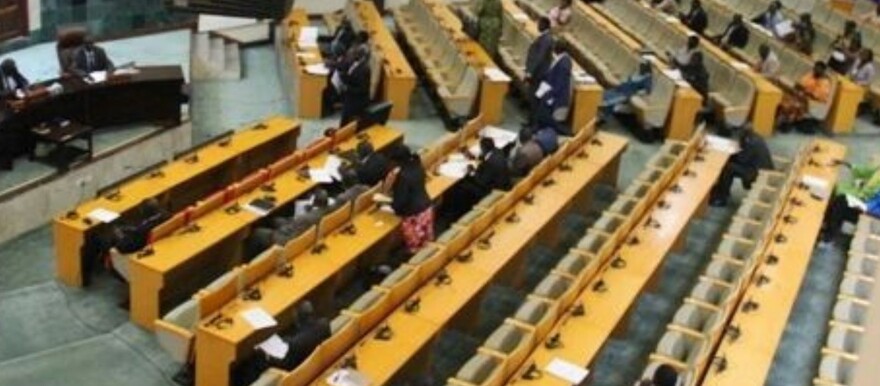The Transitional National Legislative Assembly has given its unanimous approval to increase salaries and wages for civil servants and the army in the FY2023/2024 budget.
The adjusted budget of SSP 699 billion addresses concerns that the initially proposed SSP 400 billion would be insufficient to meet the current market prices.
During the second reading of the FY2023/2024 budget on Friday, the Transitional National Legislative Assembly made a unanimous decision to raise salaries and wages for civil servants and army personnel by SSP 224 billion, bringing the total wages bill to SSP 669 billion. The assembly identified the proposed budget of 400% as inadequate to keep up with the rising cost of living in the country.
Finance Minister Dier Tong Ngor had tabled the original budget proposal of 1.8 trillion SSP last month, with SSP 455 billion allocated to salaries and wages for civil servants, organized forces, and the army. However, during the presentation of the budget on its second reading by the assembly’s Committee for Finance and Economic Planning on Wednesday, the parliament revised the salaries and wages to SSP 699 billion.
Changkuoth Bichiock Reth, Chairperson of the Committee for Finance and Economic Planning, explained that in order to cover the new adjusted salary increment, the committee had to make cuts in other areas within the budget ceiling. He emphasized that the priority of the FY 2023/24 budget was to increase salaries and wages for civil servants, the army, and other organized forces. However, the proposed 400% increment provided by the executive was deemed insufficient, leading to the recommendation of an additional SSP 224 billion, resulting in a total wage bill of SSP 669 billion.
Reth clarified the committee’s approach: “The committee recommends working within the ceiling by making cuts from chapter two, which is the cost of goods and services, and other relevant chapters.” This entailed reductions of SSP 200 billion from the Ministry of Roads and Bridges, SSP 6 billion from the Peace budget (out of SSP 50 billion), and an allocation of SSP 7 billion from the Ministry of Finance and Planning to fund salaries and wages for civil servants, the army, and organized forces. Furthermore, the budget allocated to the Presidential Affairs was cut by SSP 5 billion from its figure of SSP 32.6 billion. Additionally, the executive’s Contingency allocation of SSP 37 billion was removed to cover other potential emergencies.
The new revised allocation for salaries and wages will result in varying salary increments of 600%, 500%, and 300% for different employee grades. This means the lowest grade will receive a 600% raise, with private soldiers earning SSP 61,000, while generals will earn SSP 231,000.
Reth clarified further, “For salaries increment of civil servants, army, and other organized forces is 225; it’s 224, but we rounded it to 225. So, this will cater for the salary increment for the civil servants, organized forces, and army, where a civil servant in grade 17 will get 61 thousand pounds. And then the general or upper grade or special grade will get SSP 231 thousand. So, this is the recommendation that came from the parliament and it has to be done accordingly.”
Finance and Planning Minister Dier Tong Ngor, who was present during the presentation, expressed his support for the adjustments made by the parliament, provided they remained within the budget ceiling. He stressed the importance of responsible budgeting to fulfill the budget’s intended purpose, stating, “Because if you’re increasing salaries [beyond] what we can afford, in the end, it will then fail to address its required purpose.”
While the majority of members welcomed the proposed budget, concerns were raised by some representatives. Albino Akol Atak, the Minister of Humanitarian Affairs and Disaster Management, commended the salary increment for civil servants and the army. However, he noted that not everyone in the country is a civil servant, urging the parliament to consider other citizens who may not benefit from the salary increment but require assistance with basic services.
Minister of Environment and Forest Josephine Napon Cosmos expressed dissatisfaction with the conflicting figures on oil barrels produced per day. She highlighted that discrepancies between the Ministry of Finance and the Ministry of Petroleum’s projections could lead to an unclear budget. The finance ministry projected total oil production at 132,362 barrels per day for FY2023/2024, down from 150,000 barrels per day due to certain oil wells’ depiction and the effects of floods in 2021/2022. However, the Ministry of Petroleum’s projection remained at 150,000 barrels per day, leading to inconsistencies.
In response to this issue, Jemma Nunu Kumba, speaking on behalf of the August House, directed the committee to coordinate with the ministries of finance and petroleum to harmonize the figures. She emphasized the importance of accurate data for calculating oil revenue and called for a clear benchmark on the price of oil per barrel.
The Transitional National Legislative Assembly’s approval of the salary and wage increase in the FY2023/2024 budget addresses concerns of the proposed budget being insufficient to meet current market prices. While the majority of members welcomed the budget, some representatives raised concerns about considering vulnerable citizens who may not benefit from the salary increment and the need for accurate figures in projecting oil revenue. The parliament’s decision aims to strike a balance between supporting civil servants and the army while maintaining financial prudence within the budget ceiling.




